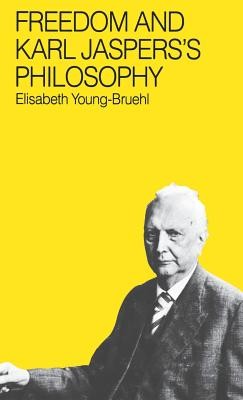
- We will send in 10–14 business days.
- Author: Elisabeth Young-Bruehl
- Publisher: Yale University Press
- ISBN-10: 0300026293
- ISBN-13: 9780300026290
- Format: 14 x 21.6 x 1.8 cm, hardcover
- Language: English
- SAVE -10% with code: EXTRA
Reviews
Description
As a founding father of Existentialism, Karl Jaspers has been seen as a twentieth-century successor to Nietzsche and Kierkegaard; as an exponent of reason, he has been seen as an heir of Kant. But studies tracing influences upon his thought or placing him in the context of Existentialism have not dealt with Jaspers's concern with the political realm and how we think in it and about it. In this study Elisabeth Young-Bruehl explicates Jaspers's practical philosophizing, his search for ways in which we can orient ourselves toward our world and its political questions.
EXTRA 10 % discount with code: EXTRA
The promotion ends in 21d.02:03:04
The discount code is valid when purchasing from 10 €. Discounts do not stack.
- Author: Elisabeth Young-Bruehl
- Publisher: Yale University Press
- ISBN-10: 0300026293
- ISBN-13: 9780300026290
- Format: 14 x 21.6 x 1.8 cm, hardcover
- Language: English English
As a founding father of Existentialism, Karl Jaspers has been seen as a twentieth-century successor to Nietzsche and Kierkegaard; as an exponent of reason, he has been seen as an heir of Kant. But studies tracing influences upon his thought or placing him in the context of Existentialism have not dealt with Jaspers's concern with the political realm and how we think in it and about it. In this study Elisabeth Young-Bruehl explicates Jaspers's practical philosophizing, his search for ways in which we can orient ourselves toward our world and its political questions.


Reviews